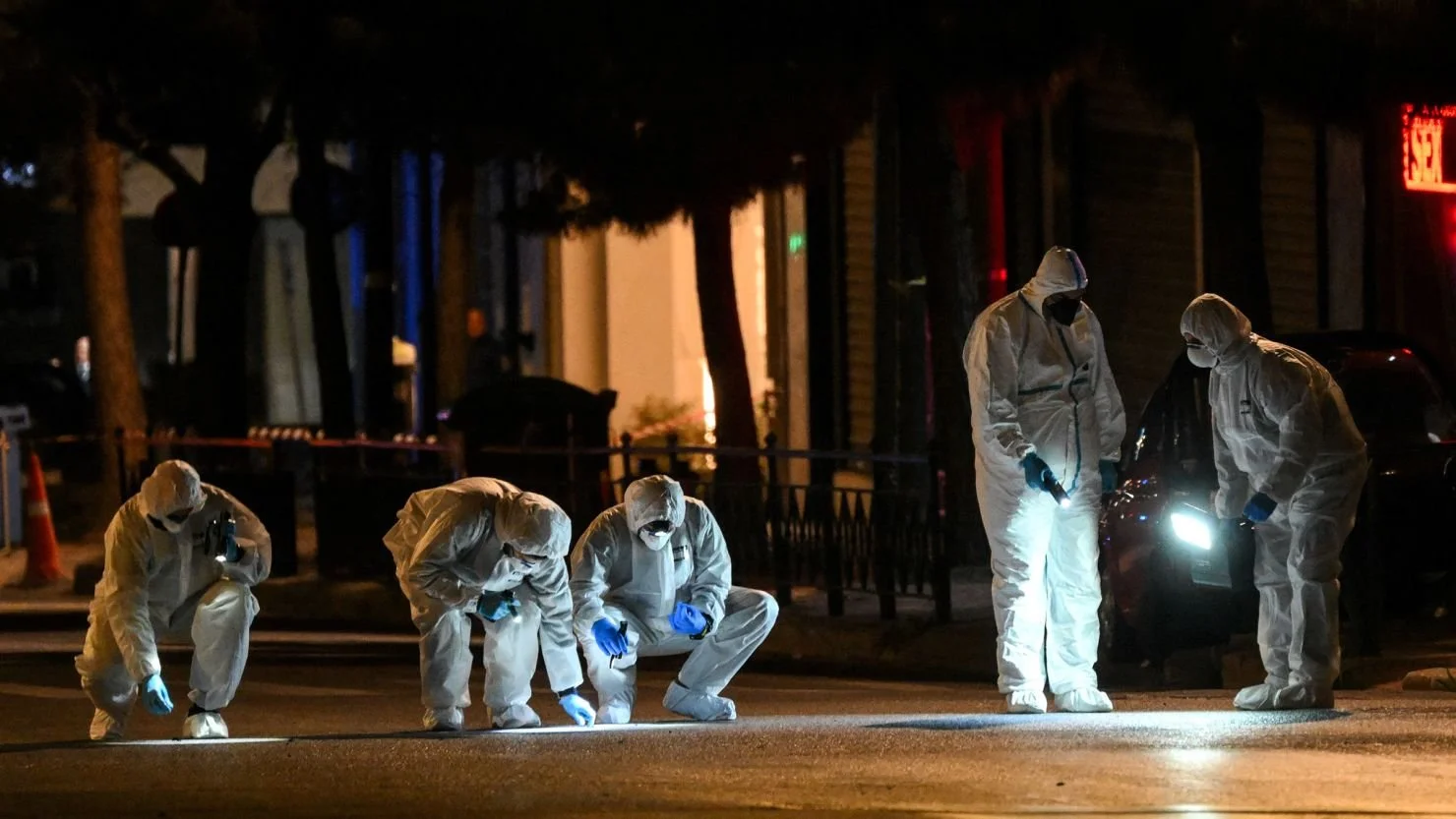Hellenic Train Bombing: Greek Authorities Close in on Two Suspects
Estimated Reading Time: 3–4 minutes
Greek authorities are narrowing in on two key suspects linked to the bombing outside the offices of Hellenic Train late Friday night, April 11, following an in-depth review of surveillance footage.
In the video, the primary suspect is seen walking calmly along Syngrou Avenue, dressed in a hooded sweatshirt. He places a backpack—later found to contain the explosive device—against a pillar near the company’s entrance. A second man, walking in the opposite direction and talking on his mobile phone, passes the scene with his face clearly visible to the camera.
Greece’s Counterterrorism Unit has identified both individuals and is reportedly close to confirming their full identities. Investigators are currently tracing their escape route and examining whether additional accomplices were involved.
The militant group “Revolutionary Class Self-Defense” has claimed responsibility for the bombing, as well as for a previous attack on the Ministry of Labor on February 3, 2024. In a detailed manifesto, the group dedicated both attacks to the Palestinian people and to a fellow member who died while assembling an explosive device in an apartment in the central Athens neighborhood of Ampelokipi.
Security sources believe the same organization is also behind two other incidents—one in Ampelokipi and another in Goudi. Although the failed Goudi bombing was claimed by a different group calling itself “Armed Proletarian Justice,” investigators suspect this was a strategic move to distance the primary group from the botched attack. Authorities believe at least two bomb makers are involved: one highly skilled, responsible for the precise detonations on Syngrou and Stadiou, and a second, less experienced individual—possibly the one killed in the earlier explosion.
The group’s manifesto also references the Tempi train disaster and the mass protests that followed in early 2024, accusing the Greek government of covering up what they call a politically driven “crime.” The text highlights workplace deaths, labor rights violations, and systemic issues within Greece’s rail network. It concludes with a reference to the October 31, 2024, explosion in Ampelokipi, connecting a broader pattern of attacks.
On April 11, the device detonated shortly after 9:30 p.m., approximately 40 minutes after a warning call was placed to news outlets at 8:54 p.m. The caller gave a specific threat and emphasized it was not a hoax, allowing authorities enough time to cordon off the area and prevent casualties.









